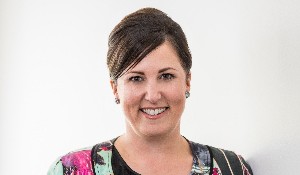Insurers want public education
Insurers want more effort put into educating the public about insurance.
Wednesday, June 26th 2019, 9:00AM  1 Comment
1 Comment

Nadine Tereora, chief executive of Fidelity Life, said the government and its agencies had spent the last decade focused on promoting KiwiSaver, which had been “a huge success”.
“We should make a similar effort with insurance, which is equally vital to ensuring our financial wellbeing. This needs to be a multi-pronged approach to reach young people in schools as well as a campaign to reach workers and families at home,” she said.
“It could include the insurance industry supporting other financial experts and educators in delivering the successful Sorted in Schools programme, to help students understand risk and forward planning, which are also useful in any business career. It would also be great to see the industry collaborate with the Commission for Financial Capability, which was granted $15 million in the recent budget. Why not put some of this towards a campaign that raises awareness about insurance as well as other elements of financial literacy?”
She said, if every New Zealander had insurance, the country would be much healthier.
“We shouldn’t have to rely on charities when accidents or illnesses happen, prioritising our cars over our families. If we’re serious about ensuring New Zealand’s wellbeing, now and in the future, let’s get together and change the attitudes to risk that are holding us back.”
Naomi Ballantyne, managing director of Partners Life, said she wanted the Government o make it compulsory for employers to provide financial education, including about insurance, or to access financial education or advice for their employees int eh same way they had to make KiwiSaver available.
| « Cigna reveals OnePath changes | Mixed reviews from advisers on FMA regulation » |
Special Offers
Comments from our readers
Sign In to add your comment
| Printable version | Email to a friend |



This needs a clear curriculum around it to ensure that personal bias and judgement doesn't come into the teaching style.
We have poor attitudes from poor outcomes, created by poor understanding at the outset. This has been echoed with the Consumer research, confirming that people don't know what they don't know and in the vacuum of any response will unfairly blame the insurers for their lack of knowledge and understanding without appreciating the issue is lack of understanding.
This subject has been talked about for the nearly 20 years I have been in the industry and we still have no significant change in approach. We have talked about it, it's time to find the money and do something about it.